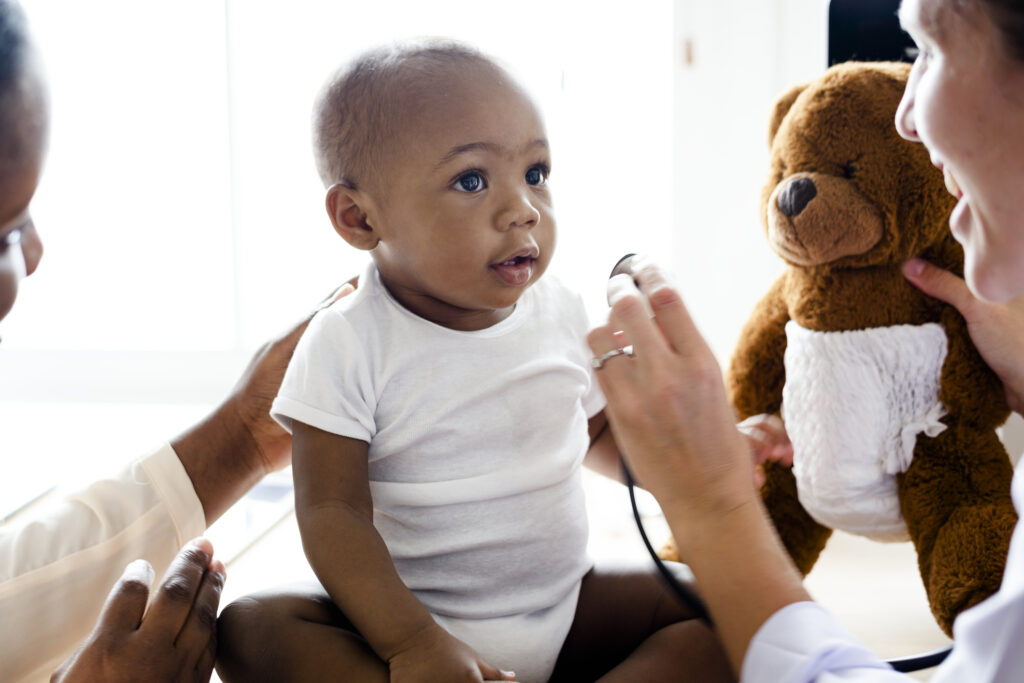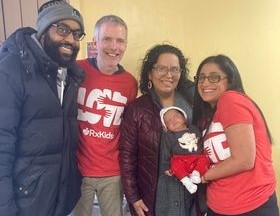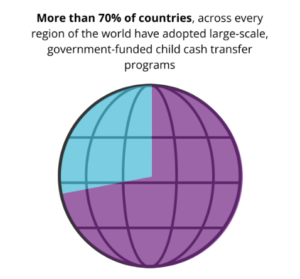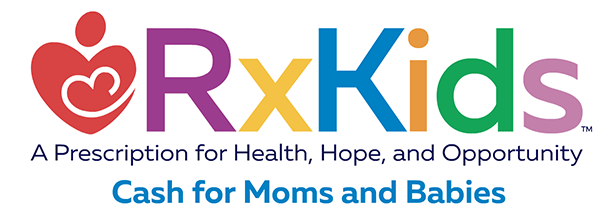
Large-scale, government-funded child cash transfer programs improve child health outcomes and are an evidence-based way for nations to invest in the future health of their population and economy.
Looking at programs from over 140 countries, researchers conclude that large-scale, government-funded child cash transfer programs improve child health outcomes and are an evidence-based way for nations to invest in the future health of their population and economy.
The new health policy paper led by Luke Shaefer, faculty director of Poverty Solutions at the University of Michigan, was published in The Lancet, one of the nation’s leading peer-reviewed medical journals, in December 2024. Co-authors of the paper include Dr. Mona Hanna, Michigan State University, Hurley Children’s Hospital Pediatric Public Health Initiative, Rx Kids Director; David Harris, Columbia University and UNICEF Innocenti Global Office of Research and Foresight; Dominic Richardson, The Learning for Well-being Institute in Amsterdam, Netherlands; and Dr. Miriam Laker, GiveDirectly in Kampala, Uganda.

Dr. Luke Shaefer and Dr. Mona Hanna with an Rx Kids family in Flint.
The publication was included in “A Presidential Briefing Book” edition of The Lancet, which included featured articles to inform the next presidential administration and provide a roadmap to better health both in the U.S. and globally.
The research team analyzed evidence from both low-income and high-income countries with child cash transfer programs. As the U.S. and other nations consider evidence-based strategies to improve children’s health and well-being, universal child cash transfer programs could be a solution to poor health outcomes for children and child poverty.
“Child cash transfers are not a new idea that needs testing. 140 countries already have and are seeing success, some for more than a decade. We’ve seen the same kind of results in the U.S. in 2021 with the expanded Child Tax Credit. It is a policy built on mountains of evidence,” said Shaefer. “UNICEF calls unconditional child benefits the ‘foundational policy’ for child social development for a reason. They improve child and mother health and are an investment all nations should be making for their future.”
Child cash benefit programs typically make recurring payments of cash (as income or tax transfers) to households with children.
The analysis of these international programs found that:
- universal child cash benefits increased household income and decreased income instability, with positive effects on housing and food security;
- reduced caregiver stress and cognitive load; and
- enabled higher rates of health care use and direct investments in children, such as more time spent engaging with them or enrichments to home learning environments.
Children living in poverty are more likely to have experiences of adversity, as well as inadequate access to health care and human services. In turn, healthier children are better equipped to succeed academically and professionally, which ultimately drives economic growth and reduces long-term public health expenditures.

140 countries (>70% of all countries) across every region of the world have adopted large-scale, government-funded child cash transfer programs.
During the 2021 expanded Child Tax Credit (CTC), the USA briefly joined other high-income countries by introducing a near-universal, unconditional child cash benefit distributed as monthly payments, which was the main driver in slashing child poverty in the U.S. to a historic low of 5.2%. Although the expanded CTC expired, state and local governments and communities have continued to advocate for and implement policies like it.
One example of a child cash transfer is the Rx Kids program, which was launched by paper authors Shaefer and Hanna in Flint, Michigan, in 2024. Rx Kids aims to “prescribe away poverty” by providing all pregnant moms in the Rx Kids community, regardless of income, with no-strings-attached cash of $1,500 during pregnancy and $500 each month throughout the baby’s first year.
To date, more than 1,200 families are enrolled in Rx Kids, with an estimated $5 million in cash prescribed by the end of 2024. Building on global and domestic research, the Rx Kids evaluation team is examining whether the program improves a wide array of individual and community outcomes, from maternal health to economic revitalization. Early evidence finds that the program is associated with markedly increased housing security, improved ability to access food, and improved maternal mental health and well-being, including reduced postpartum depression.
In 2025, the Rx Kids program will expand to other areas of Michigan, with the first expansion city being Kalamazoo. However, Hanna and Shaefer have their sights set on the program, or something similar, becoming a nation-wide policy.
Marking the journal release and their child cash transfer publication, Hanna spoke at a “U.S. Health and Its Global Implications” event co-presented by the Council on Foreign Relations and The Lancet. Hanna shared that child cash transfers are “built on massive global evidence” and programs like Rx Kids are “actionable things to address health disparities.”
“In a program like Rx Kids, which is actually a very small investment in moms and babies, (there is) a massive return on investment when you look at, for example, economic productivity later in life and decreased health care costs and criminal justice costs and all these costs later. So, I think we have to look at things over a long term, look at those societal savings,” said Hanna at the event.
